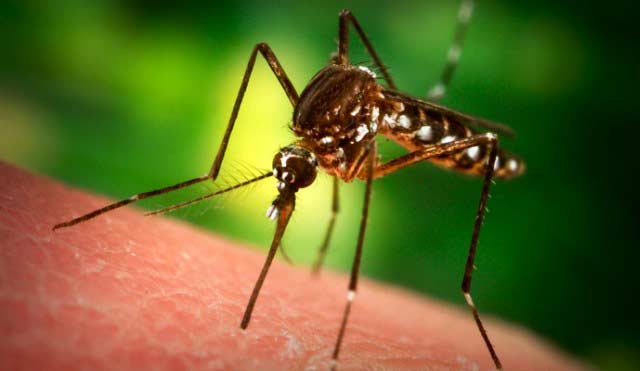Chikungunya is an infection in humans caused by the Chikungunya virus. The Chikungunya virus is mostly present in Africa, South East Asia, the Indian subcontinent and Indian Ocean islands. These are affected areas where a number of outbreaks have occurred. The virus is carried by a type of mosquito which transfers the virus to a human with aid of a bite.

Chikungunya Symptoms
Chikungunya symptoms are similar to other diseases such as Dengue, Malaria and Leptospirosis and hence misdiagnosis can occur in areas where Chikungunya is not common. When it comes to symptoms, there is little difference between Chikungunya and Dengue. In some patients, symptoms of Chikungunya may persist for years.
Most people infected with Chikungunya virus will develop some symptoms. Symptoms usually begin 3–7 days after being bitten by an infected mosquito.
The most common symptoms are:
- Fever
- Joint pain
- Headache
- muscle pain
- joint swelling
- Rashes on skin
Chikungunya disease does not often result in death, but the symptoms can be severe and disabling. Most patients feel better within a week. In some people, the joint pain may persist for months.
People at risk for more severe disease include newborns infected around the time of birth, older adults (above 65 years), and people with medical conditions such as high blood pressure, diabetes, or heart disease.
Once a person has been infected, he or she is likely to be protected from future infections.
Diagnosis
The symptoms of Chikungunya are similar to those of dengue and Zika, diseases spread by the same mosquitoes that spread Chikungunya.
See your healthcare provider if you develop the symptoms described above and have visited an area where Chikungunya is found.
If you have recently traveled, tell your healthcare provider when and where you traveled.
Your healthcare provider may order blood tests to look for Chikungunya or other similar viruses like dengue and Zika.
Treatment
There is no antiviral drug or medicine specifically for Chikungunya. But since Chikungunya is cured by immune system in almost all cases there is no need to worry. Treatment usually is for the symptoms.
Treat the symptoms:
- Get plenty of rest.
- Drink fluids to prevent dehydration.
- Take medicine such as paracetamol pr acetaminophen (Tylenol) to reduce fever and pain.
- Do not take aspirin and other non-steroidal anti-inflammatory drugs (NSAIDS until dengue can be ruled out to reduce the risk of bleeding). If you are taking medicine for another medical condition, talk to your healthcare provider before taking additional medication.
- If you have chikungunya, prevent mosquito bites for the first week of your illness.
During the first week of infection, chikungunya virus can be found in the blood and passed from an infected person to a mosquito through mosquito bites.
An infected mosquito can then spread the virus to other people.
Ayurveda treatment of Chikungunya
Since there is no medicine for Chikungunya in Allopathy, people increasingly turning to traditional Indian medicines (Ayurveda). Ayurveda treatment of Chikungunya uses herbal drugs. Some of the kashayams (concoctions) prescribed are Amrutharista, Mahasudarshana Churna, panchathiktha kashayam, Sudarshan Churnam, Dhanvantaram Gutika and Amruthotharam Kashayam.
Ancient ayurveda describes a similar condition called Sandhijwara which is similar to Chikungunya in its symptoms (joint pain). Hence some of the medicines can sooth joint pain.
Homeopathic treatment of Chikungunya
According to homeopathic experts effective drugs are available to prevent as well as to speed up recovery from Chikungunya. In some of the south Indian cities this type of treatment is tried out. It is claimed that the medicine Eupatorium perf can prevent Chikungunya infection. Other medicines prescribed for the disease include Pyroginum, Rhus-tox, Cedron, Influenzinum, China and Arnica.
Honey and lime mix is found to have soothing effect on the disease. Avoiding specific medicines is actually recommended for quick recovery. Also very mild exercise to joints can help ease the pain. For most patients, home remedies are enough. However pregnant women and patients with health problems must consult a doctor.
Currently there is no vaccination against Chikungunya. Research is ongoing on the development of DNA vaccination against Chikungunya.
Further Read: Dengue – It’s Causes, Symptoms, Prevention and Treatment
